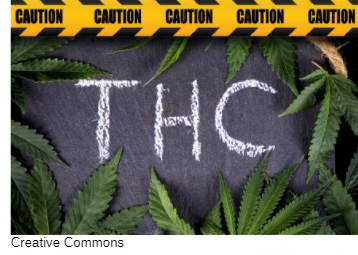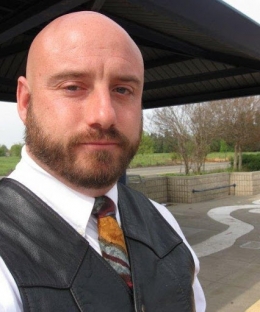 By David R. Shorey, East County Program Manager, Institute for Public Strategies
By David R. Shorey, East County Program Manager, Institute for Public Strategies
July 7, 2021 (San Diego’s East County) -- A group of doctors from around the world recently formed a new and unique medical organization that aims to take the politics out of cannabis and focus solely on research regarding the short- and long-term effects of its use. The Marijuana Prevention Initiative (MPI) of San Diego County hosted a news conference in May to introduce the International Academy on the Science and Impact of Cannabis (IASIC). The non-partisan nonprofit is a medical organization of doctors who educate on cannabis based on the scientific and medical literature. The group was created to facilitate informed decisions when considering cannabis policy and law.
The IASIC mission is to counter the pervasive misperception of the safety of marijuana by the involvement of international experts who provide science, data and clinical expertise. Dr. Eric Voth, a specialist in internal medicine, pain management and addiction medicine in Kansas, is the president of IASIC who said cannabis is a serious public health problem. The organization was formed in direct result of vigorous efforts to legalize and normalize marijuana, which is responsible for a host of medical problems.
 “We face not only greater availability of marijuana to younger populations, but also the industrial development, more concentrated, dangerous and more addictive forms of marijuana. This also impacts other chemical addictions,” Voth said at the news conference. “We also face an uphill battle to make the public aware of the medical harms of marijuana and we face a well-financed, aggressive marijuana industry that profits from marijuana abuse and addiction.”
“We face not only greater availability of marijuana to younger populations, but also the industrial development, more concentrated, dangerous and more addictive forms of marijuana. This also impacts other chemical addictions,” Voth said at the news conference. “We also face an uphill battle to make the public aware of the medical harms of marijuana and we face a well-financed, aggressive marijuana industry that profits from marijuana abuse and addiction.”
If legalization continues–and it most likely will--public health will be threatened by increased access. That puts our East County youths at risk. We should limit the availability and access of cannabis to youth. We should support packaging requirements, potency limits and quality control. The message to East County kids and young adults through age 25 is don’t use it. Like it or not, the brain is still developing. Cannabis use by young people is affecting their mental capabilities over the long term. It is addictive and unsafe, especially for use by young people. The adolescent brain is particularly susceptible to THC’s harmful and addictive effects. Today’s cannabis has higher concentrations of THC levels, which may increase youth treatment rates and unknown health consequences.
Based on the review of the scientific evidence, IASIC concludes that the public health effects of high potency cannabis are harmful. And the growing negative impacts further strain health care and addiction treatment resources to the extent that they far surpass taxation revenues. Studies have shown an association between chronic cannabis use and increased rates of anxiety, depression, suicidal thoughts, and schizophrenia. Its use is associated with addiction, respiratory and mental illness, poor motor performance, and cognitive impairment, among other negative effects. These findings are not just limited to Lakeside, Santee and the rest of East County, but the region and state as well.
“Although there is evidence of potential benefits of cannabinoids in certain medical conditions, dispensary cannabis has not been thoroughly evaluated scientifically, is poorly regulated and tested and is frequently contaminated,” Dr. Ken Finn, a Colorado pain physician and vice president of IASIC, said. Finn is also editor of the medical textbook Cannabis in Medicine – An Evidence-Based Approach.
 “A frightening data point is that marijuana is the most prevalent substance found in completed teen suicides in Colorado,” Finn said. “It used to be alcohol. It’s gone up every year since legalization of marijuana. There is a strong correlation between marijuana and acts of violence.”
“A frightening data point is that marijuana is the most prevalent substance found in completed teen suicides in Colorado,” Finn said. “It used to be alcohol. It’s gone up every year since legalization of marijuana. There is a strong correlation between marijuana and acts of violence.”
“We in prevention are consistently told by public officials and politicians that we do not have enough medical literature on marijuana harms to support policies that limit youth access and enhance public health,” Joe Eberstein, facilitator of the San Diego Marijuana Prevention Initiative. “This new resource puts that myth to rest.”
San Diego emergency room and addiction physician, Dr. Roneet Lev of Scripps Hospital, is the former Chief Medical Officer of the White House Office of National Drug Control Policy. She is one of the founding members of IASIC.
“We want the public to know the risks of marijuana with addiction, psychosis, cancer, autism, second hand smoke and more. If you choose to use, you may be asked to do so away from kids and not get behind the wheel," Lev said.
“We don’t want a war on drugs, we want facts.”
Information and resources for substance use disorder are available by calling the Access and Crisis Line at (888) 724-7240.
The Institute for Public Strategies works alongside communities to build power, challenge systems of inequity, protect health and improve quality of life. IPS has a vision for safe, secure, vibrant and healthy communities where everyone can thrive. We have plans for community conversations, to share with the East County community that we want to build up on the research and information to positively influence decision making at the local level.
 To find out more about IPS East County, follow us at IPS East County Facebook or by clicking on the links to our social media platforms:or by clicking on the links to our social media platforms: IPS East County Twitter, East County Youth Coalition Instagram.
To find out more about IPS East County, follow us at IPS East County Facebook or by clicking on the links to our social media platforms:or by clicking on the links to our social media platforms: IPS East County Twitter, East County Youth Coalition Instagram.











Recent comments